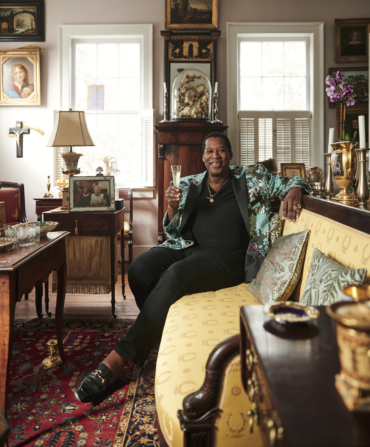One hundred summers ago, in 1920, the struggle for women’s suffrage came to Tennessee. Thirty-five states had already ratified the nineteenth amendment, which began the process of granting women the right to vote, and only one more state needed to ratify it to cement it into law. Tennessee was the pivotal, final state to ratify the amendment, but many Tennesseans don’t know that,” says Dee Patel, the current—and first-ever female—managing director of Nashville’s Hermitage Hotel.

The historic hotel was at the center of it all. Just down the street from the state capitol, pro- and anti-suffragists, and many of the legislators they were trying to lobby, set up shop at the Hermitage for six weeks that summer. “The hotel earned the nickname ‘the Third House,’ because so much was decided here,” Patel says. Pro-suffragists persuaded state representatives in the lobby, while anti-suffragists staked out a room on the hotel’s eighth floor and dubbed it the “Jack Daniel’s suite,” where they enticed congressmen with Tennessee’s favorite refreshment.

The National Park Service recently designated the Hermitage Hotel, a grand Beaux-Arts style building in downtown Nashville, as a National Historic Landmark, the highest honor a historic site can receive. Guests to the five-star inn today can experience vestiges of that monumental summer: The hotel hosts suffrage teas on the veranda, and the Oak Bar serves cocktails inspired by major players in the movement. The Carrie, for instance, named for a national leader of the women’s suffrage movement, Carrie Chapman Catt, incorporates bourbon and citrus. The Abby, named for the Chattanooga suffragist Abby Crawford Milton, features vodka and limoncello.

In a corner of the elegant lobby, visitors can peruse pro-suffrage cookbooks, anti-suffrage cartoons (like the ones depicting haggard husbands forced to take care of their children once their empowered wives left to vote), and telegrams Catt received on August 18 from state leaders congratulating her on the victory.
Standing in the lobby, Patel says she gets chills. She shares the story of that summer day a century ago: On August 18, twenty-four-year-old state representative Harry T. Burn cast the tie-breaking vote to ratify the amendment. Once an anti-suffragist, he changed his mind after reading a seven-page letter from his mother entreating him to vote for ratification. Apparently, mother’s opinion swayed him: “During the final roll call, he voted aye,” Patel says. “Then he quietly and quickly walked out of the capitol and back to the Hermitage.”









